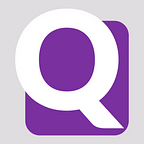NEP 2020 and it’s emphasis on developing individuals that are ready for the future.
The COVID-19 pandemic brought major developments across business and life. Across business especially, surviving the tough phase brought to the limelight an entirely different skill set that was in demand even before the Pandemic hit. Recruiters and companies aren’t looking for those age-old skill sets in prospective candidates and employees.
So, what are they looking for? It is the 4C’s of 21st Century learning-Critical thinking, Creativity, Collaboration, and Communication.
Now, Let’s see how technology plays an important role in building these skills and how you can integrate the 4Cs into your curriculum.
1. CRITICAL THINKING
Critical thinking refers to the students' ability to analyze, interpret, evaluate, make decisions and solve problems.
Good critical thinkers can draw reasonable conclusions from a set of information and discriminate between useful and less useful details to solve problems or make decisions.
Why Do Employers Value Critical Thinking Skills?
Employers want job candidates who can evaluate a situation using logical thought and offer the best solution. Somebody with basic reasoning abilities can be trusted to settle on choices freely and won’t require constant handholding. Critical thinking abilities are among the most sought-after skills in almost every industry and workplace.
2. CREATIVITY:
Creativity is often described as the pursuit of new ideas, concepts, or products that meet a need in the world. Creativity isn’t just limited to artists or writers today, but rather workers who can dissect the issues from different perspectives and lenses and, in accordance, come up with innovative solutions that we may not have considered before.
Why is Creativity considered an important soft skill?
“ Employers are moving away from looking for compliance, to looking for creativity” David Cameron, Education Consultant.
Organizations today operate in a highly competitive, global environment, making creativity crucial. Creativity fuels big ideas, challenges employees’ thinking and opens the door to new business opportunities.
3. COLLABORATION:
Although “collaboration” has become a bit of a corporate buzzword, that doesn’t mean that it’s an empty cliché. On the contrary, collaboration in the workplace is what makes teamwork successful. It’s really that simple. Collaboration in a 21st-century setting requires the capacity to work in groups, gain from and add to the learning of others, use social networking skills, and demonstrate empathy.
Why is collaboration considered a must-have skill?
The workforces of the future (and surprisingly our current day) are globalizing because of the Internet. An organization’s colleagues are currently spread across the world, but they consistently meet and work with one another. The ability to collaborate and communicate in these situations is essential.
4. COMMUNICATION:
Communication is the practice of conveying ideas quickly and clearly. In the age of text-based communications — SMS, emails, social media, etc. — it’s never been more important for people to learn how to convey their thoughts in a way that others can understand them. Effective communication includes minimizing tangents, speaking directly to an idea, and checking other participants to make sure they’re engaged.
Top Things Recruiters Look for in Communication Skills
Recruiters look for various communications skills to ensure the hired candidate can perform all necessary tasks and communicate in multiple environments. 60% of employers noted in a recent survey that many applicants lack the communication and interpersonal skills needed to thrive in the workplace, and 44% noted in another survey that those same skills are the biggest skill gap they want to close.
How Do the Four C’s Work Together?
The four C’s of 21st Century skills let individuals create a whole that’s greater than the sum of its parts. Critical thinking teaches to question claims and seek the truth. Creativity encourages people to think in a way that’s unique to them. Collaboration teaches that groups can create something bigger and better than you can on your own. Communication teaches people how to convey ideas efficiently.
Combined, the four C’s empower us to become well-rounded individuals.
How can technology assist in implementing these?
The knowledge-digital era is demanding people with higher-order thinking skills: the ability to think logically and to solve well-defined problems by identifying and describing the problem, critically analyzing the information available or creating the knowledge required, formulating creative solutions, and taking action. Technology allows for 24/7 access to information, constant social interaction, and easily created and shared digital content. In this setting, educators can leverage technology to create an engaging and personalized environment to meet the emerging educational needs of this generation.
Enhancing the teaching curriculum by using digital tools will help prepare students for their future success. Quiklrn features digital tools, resources, apps, and websites that support student learning in the Four Cs and culminates the National Educational Policy (NEP) standards for learning with technology. Contact us at offers@quiklrn.com for a detailed discussion today.
